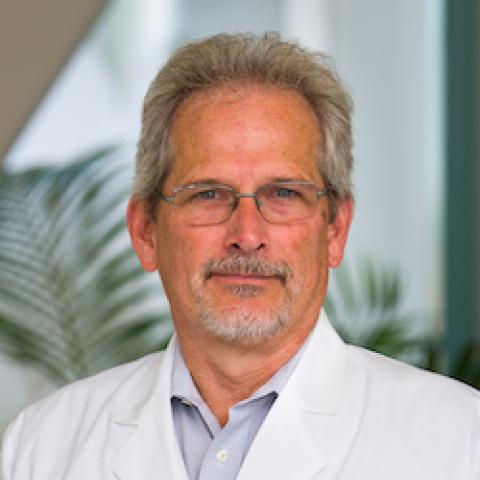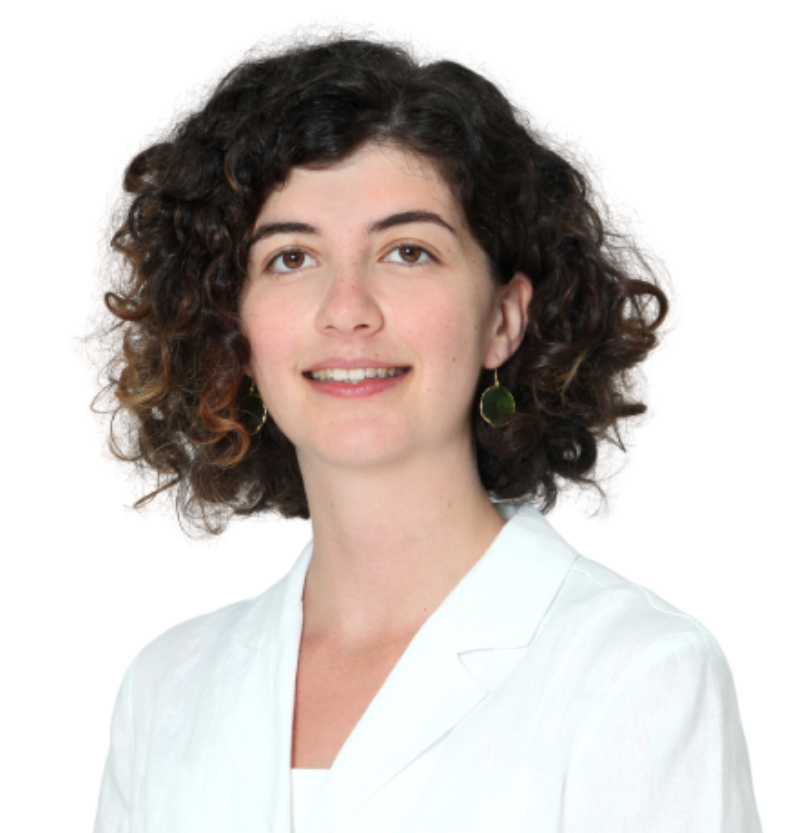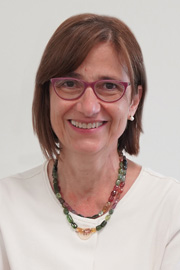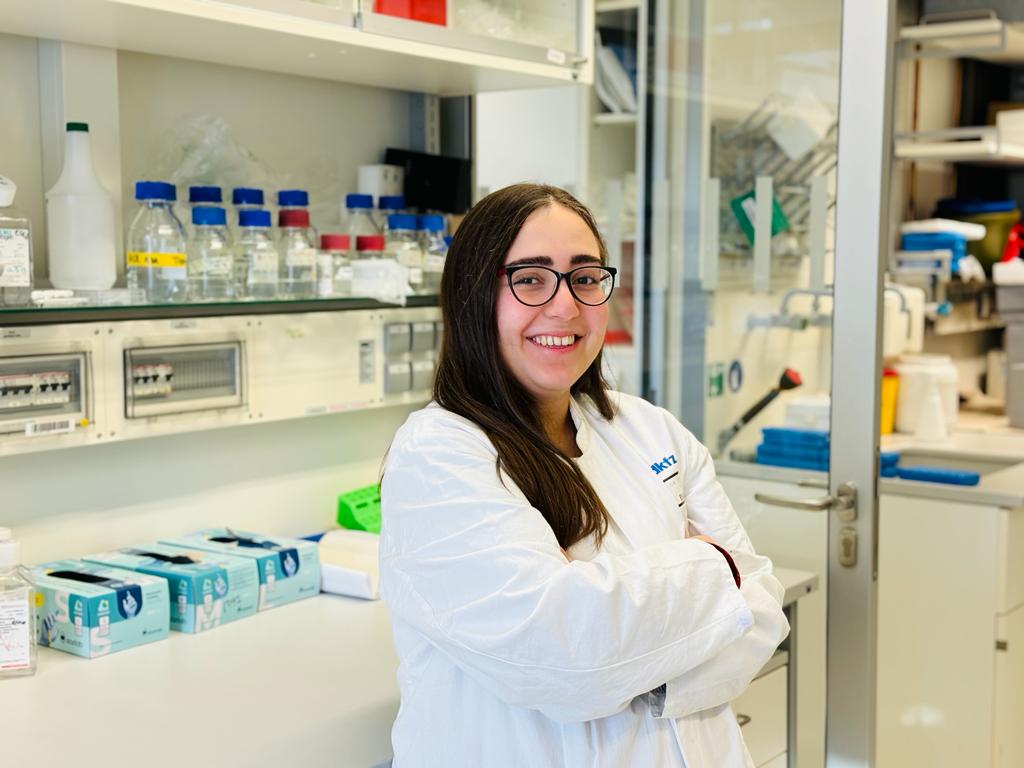|
|
Sotirios Charisopoulos,IAEA
|
Mr. Charisopoulos received his PhD in Nuclear Physics in 1989 from the University of Cologne, Germany. Sotirios has almost 30 years of research experience in Nuclear Physics and its applications with particle accelerators. He was the Director of the Institute of Nuclear and Particle Physics of the Research Center "Demokritos", Athens, Greece and the director of its Tandem accelerator laboratory. He is the author of more than 180 articles in scientific journals and conference proceedings. He has been the coordinator of various nuclear physics networks, lecturer at various schools and invited speaker at more than 30 international conferences. Reviewer on behalf of various scientific journals and funding agencies of different countries, chair of a number of international conferences and program advisory committees of accelerator laboratories and national representative in various research policy bodies. He was responsible for scientific projects for the establishment or upgrading of research infrastructures with accelerators. As an IAEA senior scientific officer, he focuses on accelerator technologies and their applications with societal and economic importance for IAEA member states. |
|
|
|
Ugo Amaldi,TERA Foundation |
Ugo Amaldi is president of the Italian Foundation TERA (Tumour therapy with hadronic radiations) since its creation in 1992. In the 60s has been Director of Research at the National Health Institutes in Rome (ISS), where he worked on radiation physics and nuclear physics. After the discovery of the proton-proton rising cross-sections, in 1973 he was offered a senior position at CERN. Here he worked in particle physics and accelerator developments; in particular, he directed, from 1981 to 1994, the International collaboration DELPHI formed of about five hundred physicists coming from twenty countries. Between 1990 and 2006 he was Physics Professor in Florence and Milan. He is Doctor honoris causa of the Universities of Lyon, Helsinki, Uppsala, and Valencia and, since 2012, is a Fellow of the European Physical Society and Distinguished Affiliated Professor at TUM (Technische Universität München). He has attributed the Bruno Pontecorvo Prize (first edition) for his contributions to the study of weak interactions and to the unifications of the fundamental forces. Under his guidance TERA – which has its offices and laboratories at CERN – developed, in collaboration with CERN, two novel types of accelerators for tumour therapy. The first one has been built by the Italian CNAO Foundation in Pavia (Italy) and has treated more than 600 patients. The second one is a linac, which is being built at CERN by the Suisse Company A.D.A.M. (Geneva). About 500 publications account for his scientific activities in the fields of physics of atoms, nuclei, fundamental particles, accelerators and medical physics. In the last 30 years, more than one-third of the Italian high school pupils have studied physics on his textbooks. |
|
Joao Seco, DKFZ |
|
Prof Seco graduated with a PhD from the University of London, at the Institute of Cancer Research (ICR) and Royal Marsden Hospital in London, UK. He then went on to become an Assistant Professor of Radiation Oncology at Harvard Medical School in Boston, working at the Massachusetts General Hospital (MGH). He then returned to Europe to work at the German Cancer Research Center, DKFZ in Heidelberg, heading up a new group dedicated to ion beam research and with the focus on 1) novel imaging technologies to reduce Bragg peak positioning errors in patients and 2) on investigating the mechanism of radiation triggered DNA damage via reactive oxygen species. He is also presently the Chair of Medical Physics at the Department of Physics and Astronomy, Heidelberg University and is a member of the EFOMP Scientific Committee, representing the DGMP, German Society for Medical Physics. |
|
 |
Maria Bigaki, Papageorgiou General Hospital |
Maria Bigaki is a Financial Economist and Certified Project Management Professional (PMP®) with extensive experience in the hospital and healthcare sector since 2000. She holds two Bachelor of Arts degrees and a Master of Business Administration (MBA). Since 2017, she has served as Program Manager at Papageorgiou General Hospital, where she oversees national, European, and international research projects, training initiatives, Erasmus KA2 programs focused on skill development for healthcare professionals, as well as software development projects. She coordinates Papageorgiou General Hospital’s involvement in the Joint Action on strengthening eHealth, which includes telemedicine and remote monitoring for cancer prevention and care (eCAN) under the EU4Health Programme (2021-2027). Additionally, she serves as the Greek representative for the RER6039 TC Project, "Developing Human Resources for Setting Up an Ion Beam Therapy Centre," part of the Joint South East European International Institute for Sustainable Technologies initiative. Her work is dedicated to advancing healthcare through innovation, research, and professional development. |
|
 |
Niklas Wahl, DKFZ |
Niklas Wahl leads the research group Radiotherapy Optimization, embedded into the Department of Medical Physics in Radiation Oncology led by Prof. Jäkel, at the German Cancer Research Center – DKFZ. His career at DKFZ started in 2015, studying probabilistic proton dose calculation and optimization to obtain his PhD with honors in 2018. Afterwards, he continued as postdoctoral researcher and project coordinator, expanding his research to other numerical and computational challenges in radiotherapy treatment planning focusing on proton and ion beams. His research touches the topics of FLASH particle therapy, AI integration, nano-dosimetric planning and multi-modality therapy. Niklas Wahl currently leads the development of the open-source treatment planning toolkit matRad. Besides his research activities, Niklas Wahl is part of multiple scientific and educational outreach activities like the Particle Therapy Masterclass since 2019. |
|
|
|
Maurizio Vretenar,
|
Maurizio Vretenar is an accelerator physicist who joined CERN in 1988 to take part in the design, construction, and operation of linear accelerators. From 2008 to 2017 he has been Project Leader for the construction of Linac4, the new 160 MeV linear injector for the CERN accelerator complex. Since 2013 he is engaged in a parallel activity as Coordinator of large EU-supported projects for joint particle accelerator R&D, taking responsibility of EuCARD-2, of ARIES, and of the new innovation-oriented IFAST. In recent years he has been increasingly active in the field of societal applications of accelerators, in particular in the medical field where he is presently leading the Next Ion Medical Machine Study (NIMMS), a new CERN initiative in the field of accelerators for cancer therapy with ions. |
|
|
|
Yannis Papaphilippou, CERN |
Dr. Yannis Papaphilippou is a Senior Principal Accelerator Physicist, leading the Accelerator and Beam Physics group of the Beams department at CERN. After receiving his PhD in non-linear dynamics applied in astrophysics (Un. of Paris, BDL, 1997), he served as staff in accelerator laboratories, designing and operating high-intensity accelerators (BNL-SNS), Synchrotron Light Sources (ESRF), colliders (CERN-LHC, HL-LHC, CLIC, FCC). For the last decade, he has been coordinating networks and research activities on Low Emittance Rings in a series of European projects (TIARA, EUCARD2, ARIES, I.FAST). He has been mentoring several accelerator physics students and post-docs, lecturing in various accelerator schools (USPAS, JUAS, LC school, CAS). Since 2018, he has been appointed as visiting professor of the Physics dept. at the Aristotelian University of Thessaloniki. |
|
|
|
Sanja Damjanovic,
|
Sanja Damjanovic is a physicist and served as the Minister of Science in the Government of Montenegro for the period 2016-2020. She made her Diploma in Physics at the University of Belgrade. She continued with PhD studies in 1999 at the Faculty of Physics and Astronomy, Ruprecht-Karls University Heidelberg, Germany, and received her Dr.rer.nat in 2002 under the mentorship of Professor Hans J. Specht, a pioneer in heavy ion physics and ion cancer therapy. In 2006, she was awarded a CERN Fellowship (a prestigious position). Since 1999, she has been embedded in international teams, she has ever since worked in two large International Organizations, at CERN in Geneva and at GSI-FAIR in Darmstadt, covering both basic and applied research in the field of high-energy nuclear physics. In her capacity as the Minister of Science of Montenegro, she initiated the creation of the South East European International Institute for Sustainable Technologies (SEEIIST; https://seeiist.eu) in March 2017 .
|
|
|
|
Yiota Foka,
|
Foka is a senior researcher currently involved in medical applications and the development of a next-generation ion facility for tumor cancer research and therapy with ions within the framework of the collaboration of the NIMMS/CERN group and her home institute GSI, where she holds a permanent position. Her career was mostly developed within the ALICE experiment at CERN's LHC, where she also served in management positions such as deputy physics coordinator, outreach coordinator, and system coordinator for data quality monitoring and event display. Active in the dissemination of information on scientific advances via the organization of conferences, seminars, and educational outreach activities, she introduced and coordinates the new "Particle Therapy Masterclass" since 2019. |
|
|
|
Manjit Dosanjh,
|
Manjit Dosanjh is the former senior advisor for medical applications at CERN and a Visiting Professor at the University of Oxford as well as the Project Leader of STELLA (Smart Technologies to Extend Lives with Linear Accelerators) for ICEC (International Cancer Expert Corps). She has coordinated the ENLIGHT (European Network for Light Ion Hadron Therapy) Network since 2006. She is the Networking Pillar for the HITRIplus project.
|
|
 |
Sandro Rossi, CNAO |
Sandro Rossi, physicist, is Director General of the National Centre for Oncological Hadrontherapy (CNAO) in Pavia (Italy), established and financed by the Italian Ministry of Health with the purpose of treating oncological patients with particle beams (protons and carbon ions). CNAO treated so far 4000 patients.
|
|
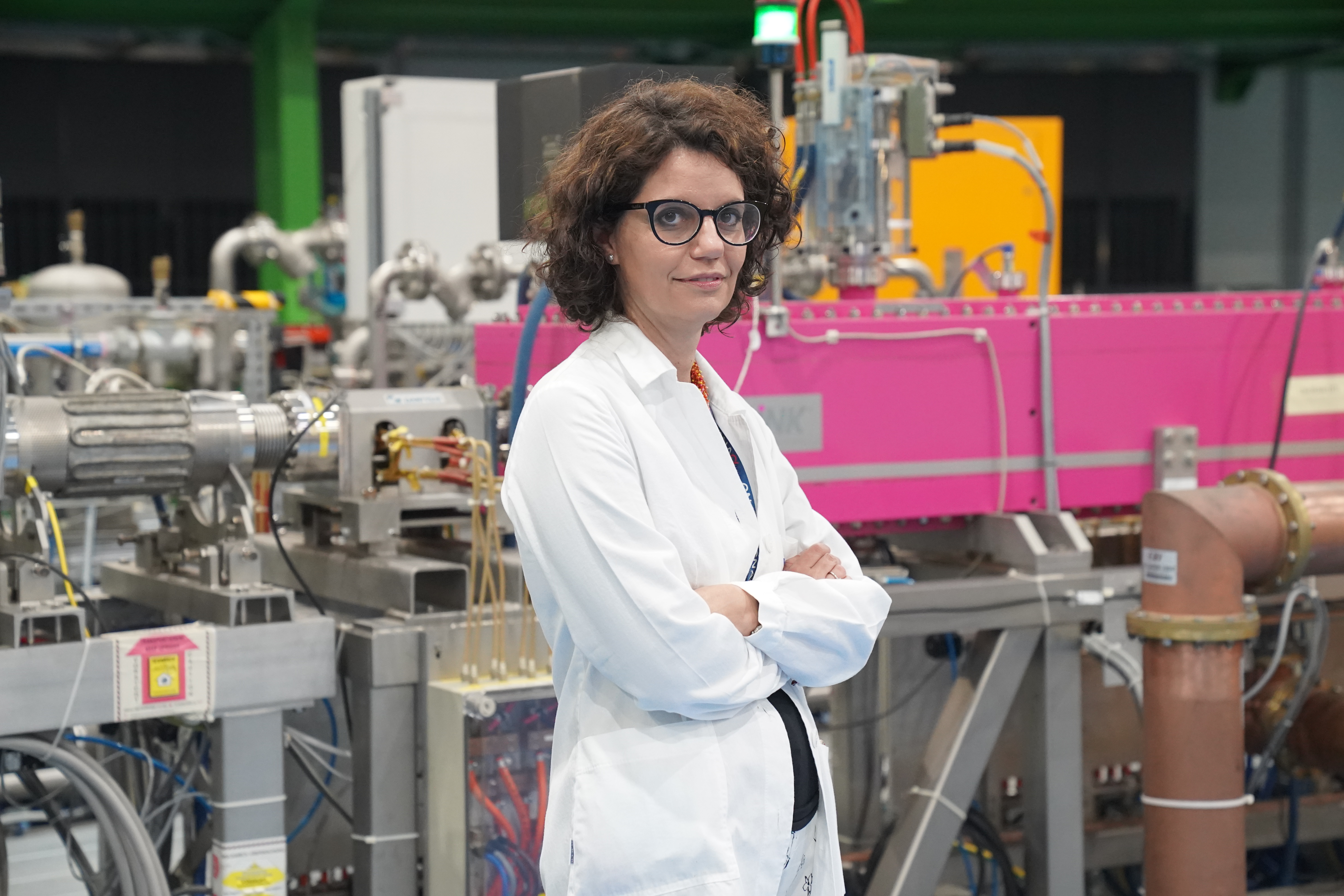 |
Angelica Facoetti, CNAO |
Graduated in Biological Sciences at the University of Pavia, Angelica Facoetti holds a PhD in Cell Biology. In 2006 she obtained the European Master Degree in Radiation Biology at the University College of London and subsequently the title of Specialization in Clinical Pathology at the University of Pavia. Since 2010 she is responsible for the radiobiological experimental activities at the National Center for Oncological Hadrontherapy (CNAO) of Pavia. She is adjunct professor of Applied Biology at the University of Milan for the School of Specialization in Medical Physics and of Biology, Anatomy and Physiology for the master's degree in Physical Sciences at the University of Pavia. |
|
|
|
Maria Vittoria Livraga, CNAO |
Chief Financial Officer at Fondazione CNAO – National Center for Oncological Hadrontherapy CEO at CNAO next srl Recruited in 2007 to organize the administrative operations and start up the internal accounting activities of the Center. Main responsibility is to ensure the management of all the financial, control and administrative aspects, according with laws, internal rules, guidelines and deadlines.
|
|
Silvia Meneghello, CNAO |
|
Head of the Communication and Public Relations Office at CNAO, Silvia Meneghello is an experienced professional in the field of communication with a robust background in public relations, customer care, and marketing. Her career in communication spans over three decades, with significant roles in various pharmaceutical industries. Since January 2010, she has been an integral part of CNAO as the Executive Assistant to the President. In 2013, she was appointed as the Head of the Communication Office and the Public Relations Office, underscoring her expertise and leadership in organizational communication.
|
|
(2).jpg) |
Ester Orlandi, CNAO |
Ester Orlandi has more than 20 years’ experience in radiation oncology in Head & Neck cancer. She worked until March 2020 at the National Cancer Institute of She fully dedicated to head and neck Cancer radiotherapy, oncological multidisciplinary approach and translational research. Since March 2020, she is the Chief of Radiation Oncology department of Italian National Cancer for Hadrontherapy CNAO.She is involved in Italian and international groups/trials on many topics mainly concerning multidisciplinary oncology management, QOL for Head and neck Cancer patients. Since March 2020 up to today, she is a representative of the EORTC Head & Neck group for the Radiation Oncology Scientific Council (ROSC). Since January 2021 she is ESMO faculty member for the Head and Neck Cancer group and since December 2022 is Scientific Committee member for ESMO 2024. Since April 2019 up to today she is Consilour of the Italian Association of Head and Neck Oncology (AIOCC). She is the author and co-author of 6 book chapters and 200 scientific journal articles in impacted peer review journals. |
|
 |
Alfredo Mirandola, CNAO |
Alfredo Mirandola graduated in Physics in 2003 from the University of Calabria, and immediately after, he enrolled in the School of Specialization in Medical Physics at the University of Milan, obtaining his diploma in 2007. He has been working at CNAO since 2007 and was directly involved in the clinical commissioning of proton and carbon ion beams. He currently holds the position of Senior Deputy Medical Physicist and Coordinator in the field of Dosimetry and Pediatric Treatments. |
|
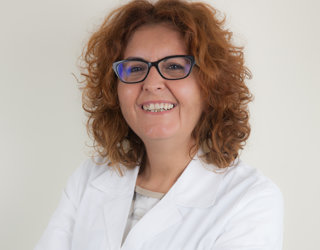 |
Maria Rosaria Fiore, CNAO
|
Maria Rosaria Fiore has almost 20 years of experience as radiation oncology. She is part of the Radiation Oncology Unit of the Italian National Cancer for Hadrontherapy CNAO since 2007. She landed at CNAO’s foundation after some years of experience in other health institutions both in Italy and abroad. Currently she is the referent of the Sarcoma’s pathology group and Ocular Melanoma at Cnao. She has been fully dedicated on the treatment especially of rare malignancies of spine and sacrum in particulary Chordoma’s istology subtype. She is involved in Italian and international groups/trials on many topics mainly concerning multidisciplinary oncology management such as Sacro trial. She is part of scientific associations among others to the Italian Sarcoma Group society (ISG) and European Musculo-Skeletal Oncology Society (EMSOS). Dr Fiore is the author and co-author of several scientific journal articles published in impacted peer review journals. |
|
|
|
Barbara Rombi, TRENTO |
Dr. Rombi obtained her degree in Medicine and Surgery from the Medical School at the University of Cagliari in 2002. She underwent residency training in Radiation Oncology at Sant’ Orsola University Hospital in Bologna from 2002 to 2006. After completing residency and entering clinical service at APSS Trento she worked, on research assignments, as a Pediatric Research Fellow in Radiation Oncology at Children’s Hospital of Los Angeles (CHLA) and at the Proton Therapy Department of Massachusetts General hospital (MGH) as a clinical fellow, as well at Paul Scherrer Institute (PSI) in Switzerland in 2010. She obtained a PhD in Oncology from the University of Bologna in 2021.
|
|
|
|
Klemens Zink, MIT |
Klemens Zink is the Scientific and Technical Director at MIT since august 2019. He is a physicist, receiving his PhD in solid-state physics at the Technical University Berlin in 1990. For about 30 years he is working in the field of medical physics in different radiotherapy departments, since 2001 he holds a professorship in medical physics at the University of Applied Sciences Giessen/Germany. He is the author of more than 75 peer-review publications in the field of medical physics. |
|
|
|
Fabian Eberle, MIT |
|
|
Georgius Dedes, LMU |
George Dedes is a staff scientist of the Department of Medical Physics (LS Parodi), in the Ludwig-Maximilians University of Munich. He graduated in 2004 from the Physics Faculty of the Aristotle University of Thessaloniki in Greece, with a specialization in Particle and Nuclear Physics. From 2004 to 2008 he performed his doctoral studies at the Max-Planck Institute for Physics in Munich and at the Technical University of Munich. The topic of his dissertation was the study of the potential for the discovery of a supersymmetric Higgs particle, using the ATLAS experiment of the LHC accelerator at CERN. From 2010 to 2013, he worked for the Nuclear Physics Institute of Lyon (IPNL) and the CREATIS Medical Imaging Research Centre of the University of Lyon, on the topics of prompt gamma modelling in Geant4, prompt gamma range monitoring for particle therapy and proton computed tomography. Since 2013, he works on several computational aspects of particle therapy, such as prompt gamma particle range monitoring, proton imaging, Monte Carlo treatment planning for proton therapy and laser ion acceleration. |
|
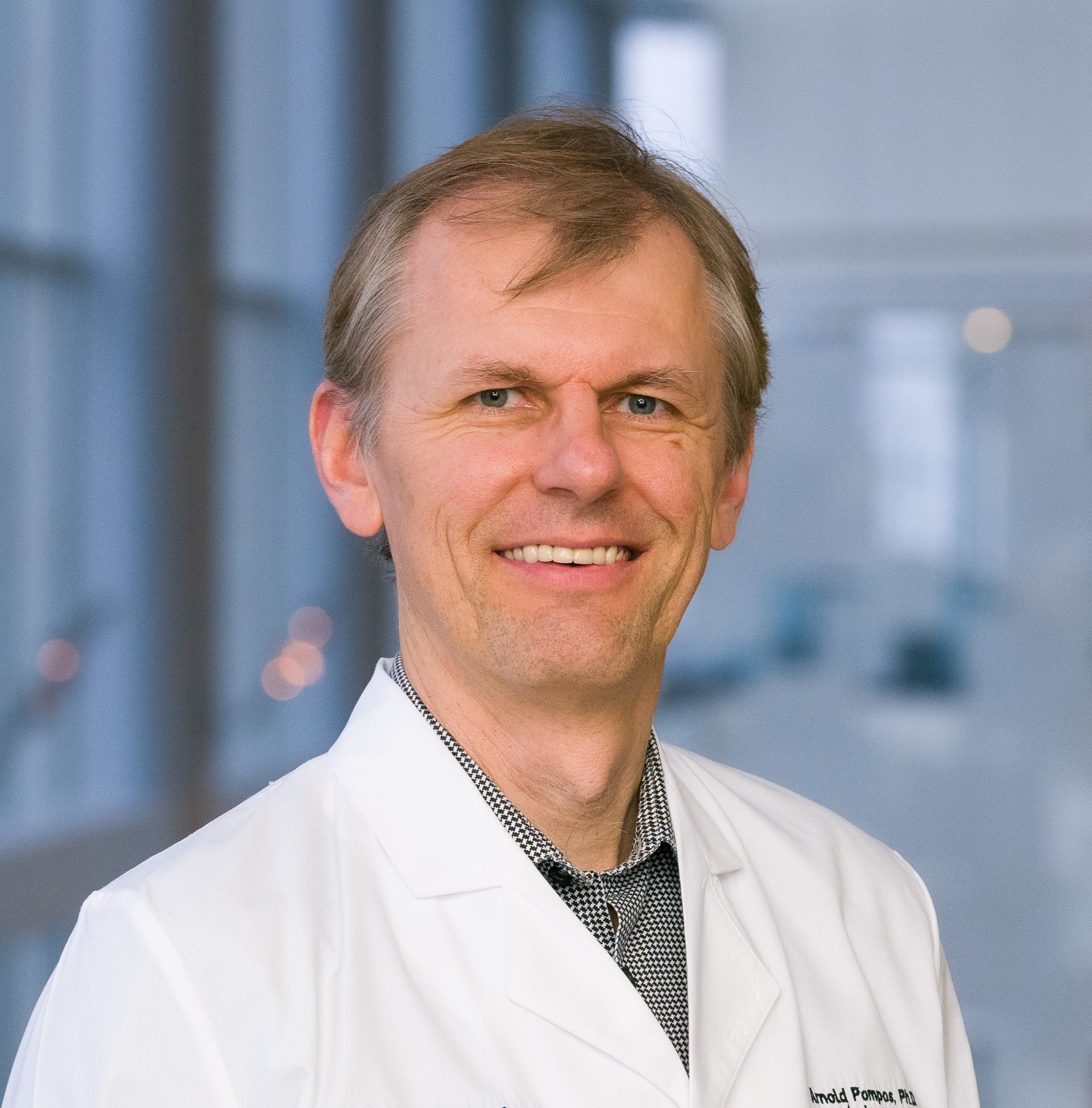 |
Arnold Pompos, UTSW |
1994 ΜS ( High Energy Theretical Physics ) from Charles University in Prague, Czech Republic, 2002 PhD ( High Energy Experimental Physics ) from Purdue University, West Lafayette, Indiana, USA, 2006 Postdoc stationed at Fermi National Laboratory, Chicago, IL, USA, 2008 Finished Residency in Universty of Nebraska Medical Center in the field of Therapeutic Radiation Oncology Medical Physics, 2010 Certified by American Board of Radiology in Therapeutic Radiation Oncology Medical Physics, 2009 Assistant Professor of Physics, UT Southwestern Medical Center, Dallas, TX, 2015 Associate Director of Medical Physics Residency Program, UTSW, 2015 Lead Physicists for UTSW effort to Plan the First Heavy Ion Therapy and Research Center in US, 2017 Director of Clinical Medical Physics, Associate Professor of Physics, UT Southwestern Medical Center, Dallas, TX, 2019 Director of Strategic Expansion Planning, Radiation Oncology, UTSW, Dallas, TX, 2021 - Present: Associate Vice Chair for Strategic Expansions and Capital Investments, Radiation Oncology, UTSW, Dallas, Texas, USA. |
|
|
|
Michael D. Story, Mayo Clinic |
Michael Story, Ph.D. is the director of Radiobiology, Carbon Therapy Program at Mayo Clinic, Florida.
|
|
|
|
Stefania Oikonomou, Web2Learn |
Stefania specialises in community engagement and social participation in citizen science projects. Stefania is also interested in science communication and open science, having completed training in Greece and abroad. She has acquired a BA in political science (2020) and an MA in political history (2022) from the Aristotle University of Thessaloniki.
|
|
|
|
Aspasia Tasiopoulou, Veria Library |
Aspasia Tasiopoulou has been working at the Public Library of Veria in Greece since 1993, right after her graduation from the Library School (Department of Library Science and Information Systems) in Thessaloniki. The Veria Central Public Library is a Public Law Entity, subjected to the Ministry of Culture, Education and Religious Affairs. In 2010 it was awarded the Access to Learning Award (ATLA) by the Bill and Melinda Gates Foundation, on the account of implementing technology into its infrastructure and creating a powerful framework for the local community. The library is recognized as a successful model library, due to the creative use of computing and technology services to fulfill social, educational, and cultural needs of more than 180,000 people – and the number keeps on growing! People from the wider region come to visit the library daily and more than 34,000 people are listed as library members. The library collection includes 150,000 items (books, newspapers, magazines, dress patterns, board games, tablets, kindles, foreign languages teaching methods and tools, CDs, vinyl, DVDs, and more). The library also features a recording studio (Media Lab), a Maker Space/Tech Lab equipped with a 3D printer, an inspiration area, as well as education and learning rooms for relaxation and study. |
|
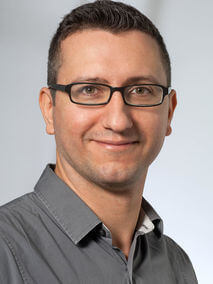 |
Andresa Mairani, HIT |
Andrea Mairani got his degree in Nuclear Physics at the University of Milan followed by a PhD in Medical Physics from the Universities of Pavia and Houston. He subsequently worked for the establishment of the Heidelberg Ion-Beam Therapy (HIT) as a postdoc then He moved to the National Center for Oncological Hadrontherapy (CNAO) as responsible for Monte Carlo calculations for the commissioning and the start-up of the clinical operation at CNAO. He returned in 2016 to HIT establishing the BioPT (Biophysics in Particle Therapy) group. His main research interests lie in the development of Monte Carlo methods, advanced biological models and new treatment modalities (multi-ions, ion arc and FLASH) for particle therapy. He is the author or co-author of over 130 peer-reviewed papers. |
|
 |
Sabina Vennarini, INT/CNAO |
Doctor Sabina Vennarini is currently in clinical practice, since November 2021, as Head of the Pediatric Radiotherapy Unit at the IRCCS Istituto Nazionale dei Tumori Foundation in Milan, Italy and as Senior Consultant and Head of Pediatric Proton Therapy at the National Center of Oncologic Adroterapa in Pavia (CNAO), Italy. Prior to these job positions, she worked at the Protontherapy center in Trento, Italy, where she contributed to the development of proton therapy in Italy and treated the first pediatric patient in Italy in June 2015. Also in Trento, she was the physician in charge of the Safety and Clinical Performance of the 1.5T Philips Magnet of the Proton therapy Center in Trento, Italy; contributing to the development and implementation of clinical protocols for preparation for radiation treatment, focusing on MRI sequence acquisition for paediatric neuro-oncology patients.
|
|
 |
Semi Harrabi, HIT |
Semi Harrabi is a radiation oncologist (Oberarzt) at University Hospital Heidelberg and primary responsible for the Heidelberg Ion Beam Therapy Centre (HIT). His field of interest and expertise lie in pediatric cancers, neuro-oncology, sarcoma and the application of high-precision radiotherapy with charged particles. His research aims to develop innovative treatment options with protons, helium and carbon ions to improve outcome and decrease the burden of treatment related sequelae. He is an active member of both national and international working groups related to particle therapy or pediatric oncology and serves on the steering committees for low grade glioma (LOGGIC), osteosarcoma (COSS), rhabdomyosarcoma (CWS), the SIOPE radiation oncology working group and the Green Journal’s editorial board. Further, he is co-founder of the consortium reference radiotherapy for the German pediatric oncology society and head of the national radiotherapy reference institution for pediatric malignancies. |
|
 |
Roberto Orecchia, IEO
|
He graduated from the University of Turin and during his post-doctoral period, he obtained degrees in Radiotherapy, Medical Oncology and Diagnostic Imaging. From 1994 to 2018, he was Full Professor of Radiotherapy at the University of Milan and currently holds the role of Emeritus Professor in the same university. Since 1994, he is Head of the Department of Medical Imaging and Radiation Sciences of the European Institute of Oncology (IEO) in Milan and from January 2015, he is also the IEO’s Scientific Director. From 2010 to the end of 2018, he was also Scientific Director at the National Center of Oncological Hadrontherapy (CNAO) the only Centre in Italy that uses hadrontherapy with both protons and carbon ions to treat tumours. Currently, he is member of the CNAO’s Scientific Board.His clinical and research activities focus on various fields of radiotherapy and oncology, from the beginning characterized by a strong interest in innovation. To date he has published over three hundred and seventy scientific articles in journals listed in the Pub-Med. |
|
|
|
Konrad Lehmann, GSI |
Konrad Lehmann studied biology and obtained his PhD in neuroscience from the university of Bielefeld. He studied neural plasticity in mouse brains and led a research group at the university of Jena, where he also habilitated and lectured. Since 2019, he is at the GSI Helmholtzzentrum as a laboratory manager and supervisor of animal experiments. In the HITRI+ project, he is responsible for the management of transnational access. Besides contributing to basic science, he is also a science writer, having so far published three books on brain-related topics for a general audience. |
|
|
|
Pawel Olko, PAN |
Pawel Olko graduated in physics from AGH University of Science and Technology, Krakow, Poland. Between 1986-1989 he was a fellow at the Institute for Medicine Nuclear Research Centre KFA Juelich, Germany. He received a Ph.D. in physics from the Institute of Nuclear Physics Krakow in 1990, habilitation in 2003 and the Polish state professorship title in 2010. In 1998-1999 he worked at Dosimetry and Medical Physics Section at IAEA in Vienna. Between 2005 and 2016 he was a scientific director at the Institute of Nuclear Physics Polish Academy of Sciences (IFJPAN) and between 2012-2016 director of the Bronowice Cyclotron Centre, the first proton therapy center in Poland. Since 2016 he is the head of the Division of Applied Physics at IFJPAN.
|
|
|
|
Lisa Licitra, CNAO, University of Milan, IRCCS |
Lisa Licitra is specialised in Medical Oncology, with expertise in Head and Neck cancer treatment. She is Chief of Head and Neck Cancer Medical Oncology Dept, Fondazione IRCCS Istituto Nazionale dei Tumori, Milan, Italy.
|
|
|
|
Laura A. Vallow, Mayo Clinic |
Laura Vallow, MD, is a Professor of Radiation Oncology and the Department Chair for the Department of Radiation Oncology at Mayo Clinic Florida. Her clinical practice focuses on the treatment of breast cancer. Her research interests include novel therapies and advancing technologies to treat cancer more effectively while improving patients' quality of life. She serves as the Director of Heavy Particle Therapy at Mayo Clinic Florida and is primarily responsible for the overall success of the Carbon Ion Therapy Center at Mayo Clinic Florida. |
|
|
|
Leandar Litov, Uni Sofia |
Prof. Leandar Litov graduated from the Faculty of Physics of Sofia University “St. Kl. Ohridski” in 1980, majoring in nuclear and particle physics. He worked for 10 years at the Joint Institute for Nuclear Research (JINR) – Dubna. In 1990 he returned to Sofia University, where he lectures since then in quantum and particle physics. He has been conducting investigations at the Serpukhov accelerator and – since 1992 – at the accelerator complex at CERN. Founding member of the CMS collaboration and Team Leader of the Sofia University team involved in the experiments at the Large Hadron Collider. He is author and co-author of over 600 scientific papers, and laureate of a number of national and international scientific awards. He is also Chair of the Institution Board of RPC CMS Collaboration, member of European Commission for Future Accelerators (ECFA) and of the CERN Council. |
|
|
|
Nermine Muradi, Uni Tetova |
|
|
|
|
|
Elpida Theodoridou, DKFZ/Uni Malta |
Elpida Theodoridou is a dedicated Master's student at the University of Malta and DKFZ (2023-present), specializing in Information and Communication Technology. She holds a BSc in Physics from Aristotle University of Thessaloniki (2018-2023), where she graduated second in her class. Elpida has presented her research at prestigious conferences, including the FLASH Workshop (2024) and Particle Therapy Masterclass (2023). She has contributed to innovative research with patents and papers in radiotherapy dose delivery and X-ray beam dosimetry, currently under preparation.
|
|
|
|
Aristeidis Mamaras, CERN/AUTH |
|
|
|






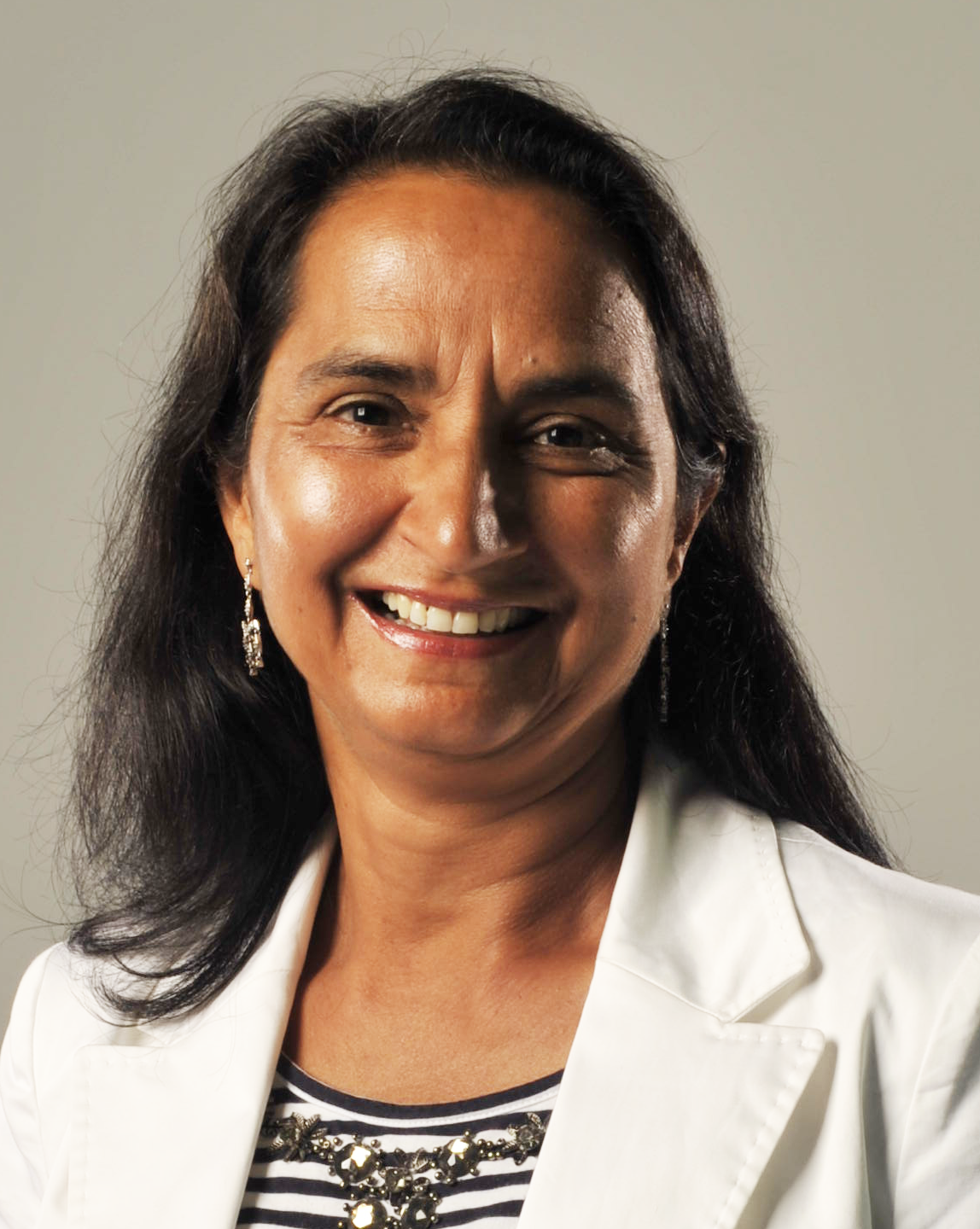
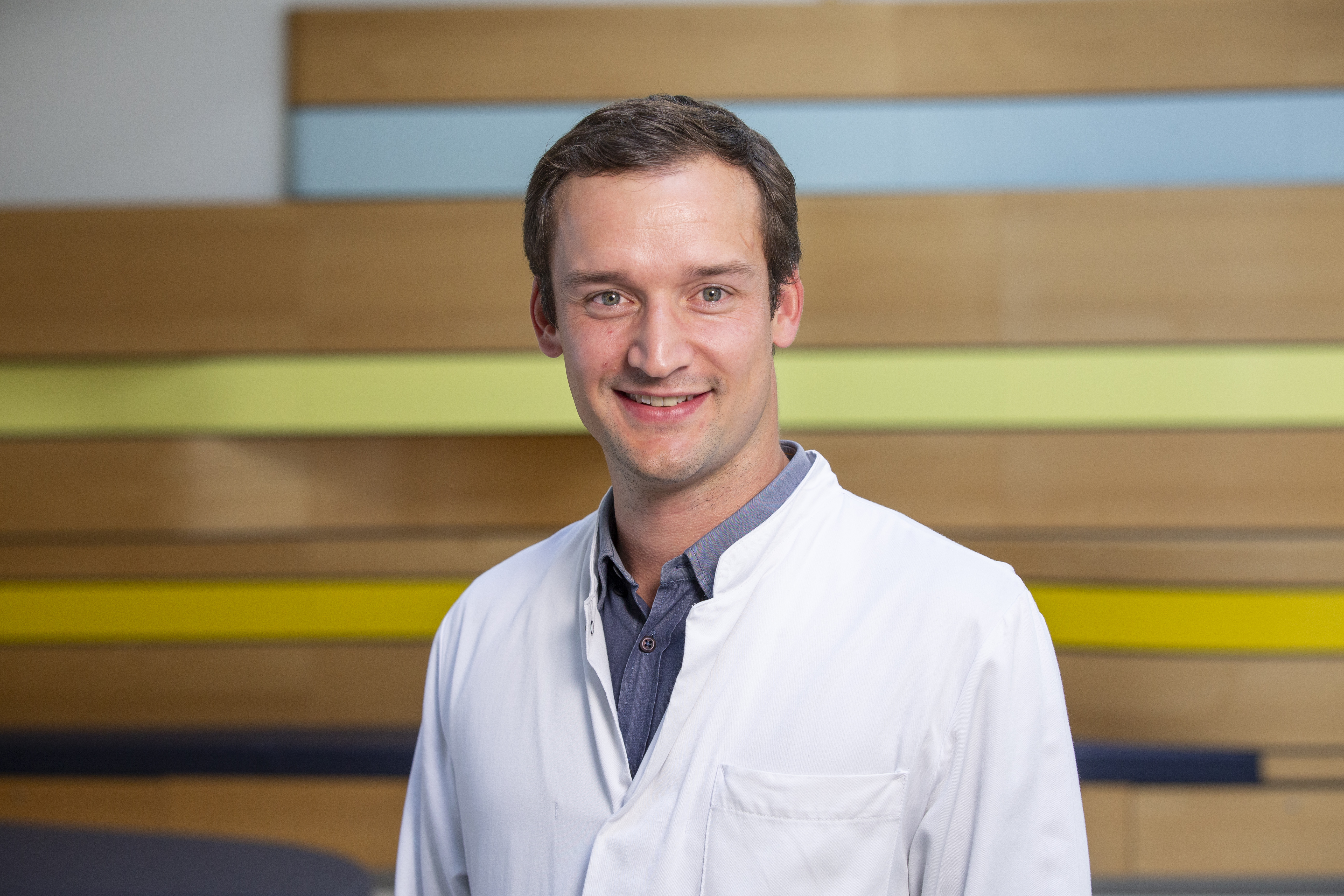.jpg)

